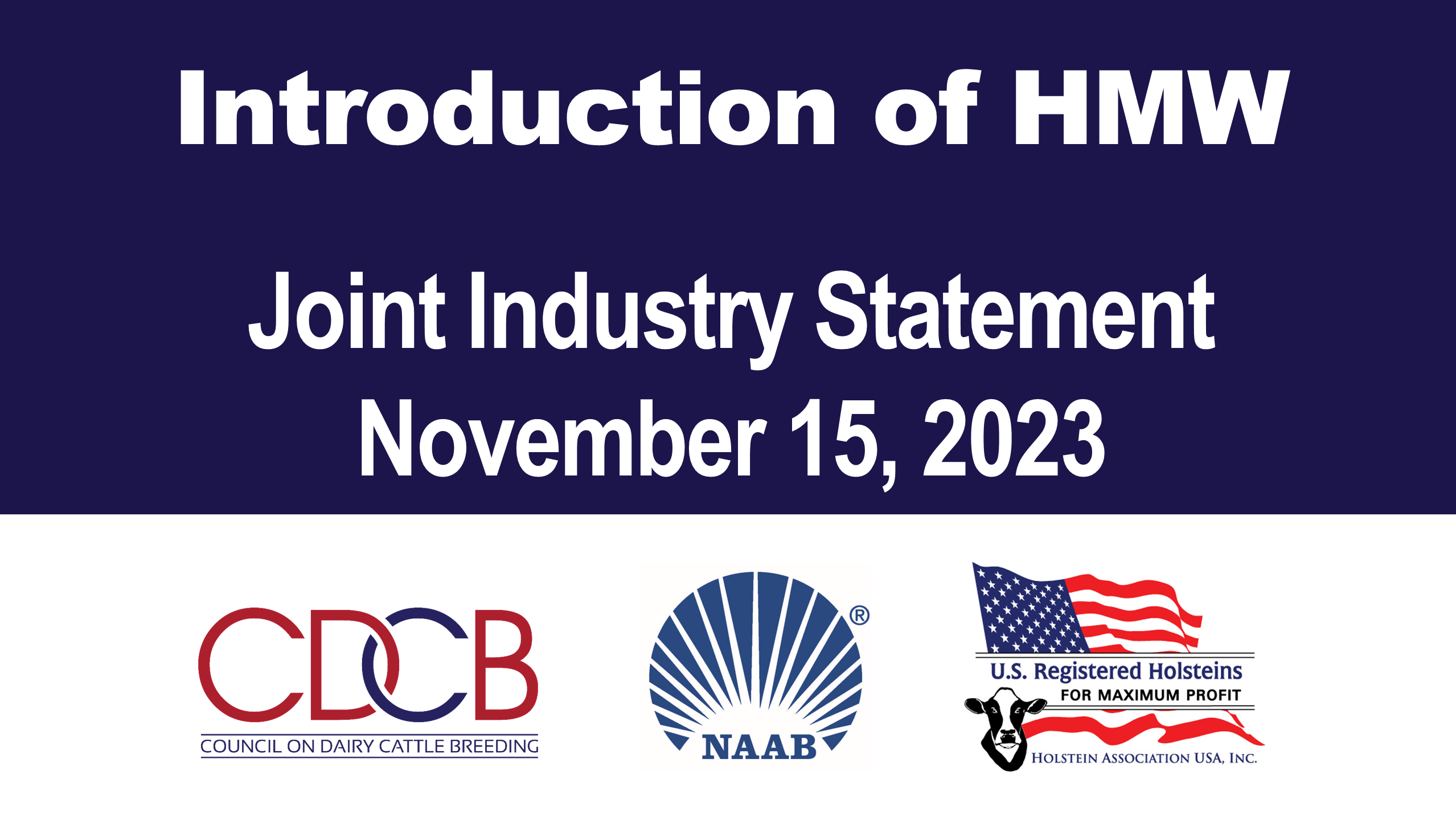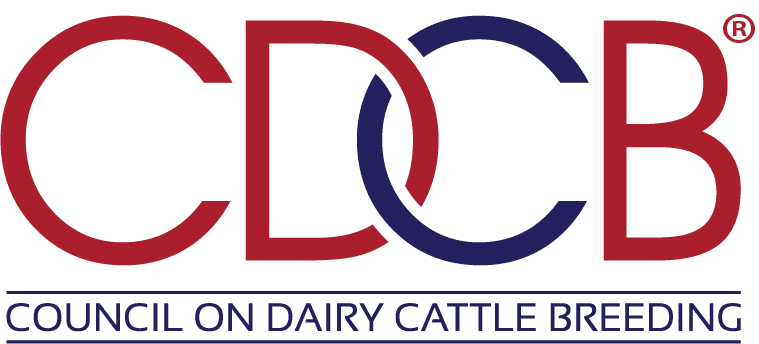Introduction of HMW: The Haplotype Call for Early Onset Muscle Weakness Syndrome
Written by CDCB , Holstein USA , National Association of Animal Breeders
November 15, 2023

November 15, 2023 – The December 5, 2023, dairy cattle genetic evaluations will contain a new haplotype call for Early Onset Muscle Weakness Syndrome.
Abbreviated HMW, U.S. genetic evaluations will include the reporting of noncarrier (0), carrier (1), homozygous (2), probable carrier (3), or probable homozygous (4) status of an animal for Early Onset Muscle Weakness Syndrome (abbreviated MW).
This is a genetic condition that remains under investigation by Holstein Association USA (HAUSA). The development of this haplotype call has been a top priority for the Council on Dairy Cattle Breeding (CDCB), USDA Animal Genomics and Improvement Laboratory (AGIL), National Association of Animal Breeders (NAAB), and HAUSA prior to the condition’s first introduction to the industry in April 2023.
Last year, farmers in several states contacted researchers at Penn State about a suspected genetic condition characterized by a calf’s inability to stand up or remain standing if assisted. This condition was initially referred to as calf recumbency but has since been updated to Early Onset Muscle Weakness Syndrome, or MW. According to current research, this disorder usually begins within the first two months of life, when calves exhibit muscle weakness, become unthrifty, and succumb to secondary health problems, such as pneumonia, or are euthanized.
HMW Development
Leveraging the methodology used in the development of the haplotype call for Cholesterol Deficiency (HCD), a haplotype call for MW was first presented to the CDCB Board of Directors at the end of August. The initial process proposed relied on the current SNP list and produced encouraging results but with many “unknown” HMW calls/results for animals that may have inherited either the original or mutated haplotype.
Throughout September and October, rigorous testing of processes was performed by CDCB and AGIL to allow for the utilization of direct gene testing results. Testing these theories involved the re-imputing of all calls – a process that can take days to weeks – and resulted in unacceptable accuracy rates, which caused this potential process to be discarded.
Following the inconclusive results of the original direct gene test inclusion theory, adjustments were made to the initial process proposed in August. An amended use of lab results during haplotype identification resulted in approval by the CDCB Board of Directors.
Breeder Strategies and Information
As with any genetic condition, testing for the presence of it is the best first step in managing the condition and implementing breeding strategies within herds. With the development of the haplotype call for Muscle Weakness, this knowledge is now available for general population females in a cost-effective, efficient way through the normal genomic evaluation process.
Results for HMW will be reported as 0, 1, 2, 3, or 4 on evaluations. Available results – direct gene test or haplotype call – will NOT be displayed on Official Holstein Pedigrees as HAUSA has NOT declared this disorder as an officially recognized undesirable genetic condition.
Breeders should be aware that CDCB anticipates that a significant number of the 7 million Holstein genotypes in the database will receive status 3 or 4 for HMW, meaning “probable carrier” and “probable homozygous,” respectively. These calls are reported as “probable” due to the inability to confirm the presence of the mutated haplotype through available pedigree information.
As breeders perform gene tests on animals, they are encouraged to submit test results to HAUSA. A collaboration is in place between HAUSA and CDCB to confidentially exchange these gene test results as a tool to improve the HMW call and decrease the number of animals with a 3 or 4 HMW result in future evaluations.
The best tool available for discovering and understanding new genetic conditions like MW is farmer reporting through the breed association of the respective animal. Farmers that suspect a calf is affected by MW should complete the HAUSA Abnormality Report Form (https://www.holsteinusa.com/pdf/forms_apps/abnormality_report.pdf) and email it to LabResults@holstein.com, or contact the HAUSA Genetic Services department at 800-952-5200.
As with all genetic decisions, breeders can make their own risk assessment when mating carrier, homozygous, potential carrier, or potential homozygous animals. An HMW call of 1, 2, 3, or 4 in an animal should not automatically equate to removal from the herd. Instead, the call indicates a new factor to be managed through mating and selection decisions. For additional insight on how one producer manages genetic conditions, review the panel discussion during the 2023 CDCB Industry Meeting at World Dairy Expo, “Undesirable Genetic Factors and Genomics’ Role in Discovery.”
Additional Resources
- Dechow, C.D., E. Frye, and F.P. Maunsell. 2022. Identification of a putative haplotype associated with recumbency in Holstein calves. JDS Comm. 3:412– 415. https://doi.org/10.3168/jdsc.2022-0224
- Dechow, C. 2023. Mutation sometimes leads to calf recumbency. Hoard’s Dairyman.
- Joint Industry Statement: Recumbency in Holstein Calves
For Information Contact
João Dürr, Council on Dairy Cattle Breeding (CDCB) joao.durr@uscdcb.com
Lindsey Worden, Holstein Association USA LWorden@holstein.com
Jay Weiker, National Association of Animal Breeders (NAAB) jweiker@naab-css.org
